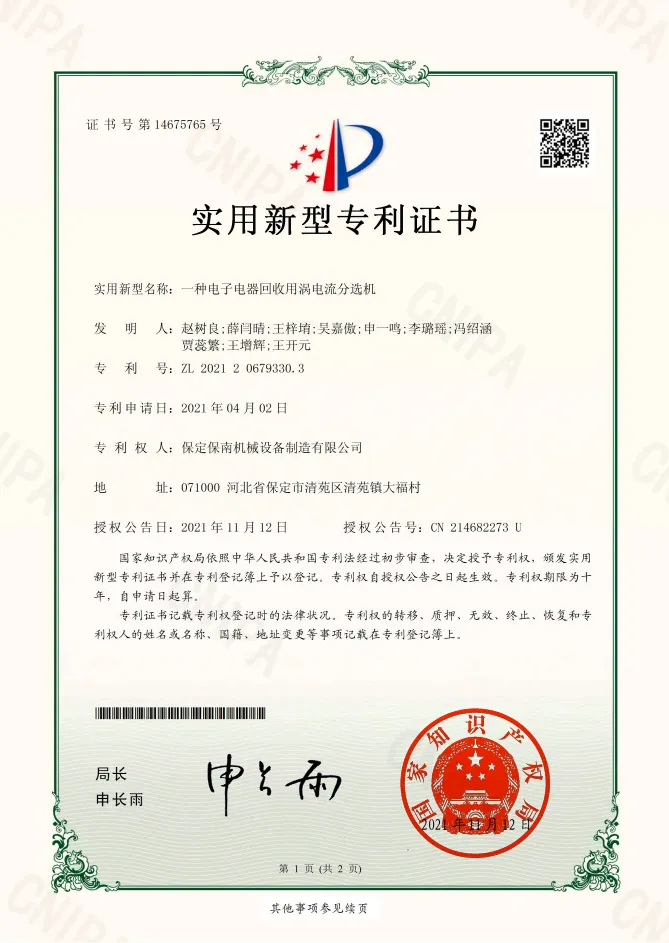

Aug . 14, 2024 14:02 Back to list
How Do You Recycle Old Electronics?
In today’s technology-driven world, electronic devices have become an integral part of our daily lives. From smartphones and laptops to televisions and kitchen appliances, our reliance on electronics is undeniable. However, as time passes, these devices often become outdated or malfunction, leading to a significant problem electronic waste, commonly known as e-waste. The improper disposal of e-waste can pose serious environmental hazards and health risks. Therefore, learning how to recycle old electronics is crucial.
Recycling old electronics is not only environmentally responsible but also a way to recover valuable materials. Many electronic devices contain precious metals like gold, silver, and copper, along with plastics and glass that can be reused. The recycling process helps keep these materials out of landfills, where they can leach harmful substances into the environment.
How Do You Recycle Old Electronics?
If the device is non-functional or beyond repair, the next step is to locate a legitimate e-waste recycling facility. Most communities have designated collection points or services that specialize in recycling electronics. Many retailers, such as electronics stores or big-box retailers, also offer recycling programs where you can drop off your old devices. Before proceeding, ensure the facility is certified and adheres to responsible recycling practices, as improper handling can lead to environmental contamination.

When preparing your devices for recycling, it’s essential to safeguard your personal data. Before donating or recycling a computer, smartphone, or any device containing sensitive information, back up your data and then perform a factory reset. This process will erase your personal information, ensuring that it doesn’t fall into the wrong hands. For additional security, you can use data-wiping software that overwrites your data multiple times, making recovery virtually impossible.
Another option for recycling electronics is participating in manufacturer take-back programs. Many tech companies, including Apple and Dell, have implemented programs that allow customers to return old devices for responsible recycling. In some cases, these programs provide incentives, such as store credit or discounts on future purchases, making it a win-win situation for everyone involved.
When it comes to recycling old electronics, awareness of hazardous materials is vital. Many electronic devices contain substances like lead, mercury, and cadmium, which can be harmful to both environmental and human health if disposed of improperly. By choosing to recycle, you’re not only helping to keep these harmful materials out of landfills but also ensuring that they are processed in a safe manner.
In conclusion, recycling old electronics is a crucial step in managing e-waste and promoting environmental sustainability. By donating working devices, utilizing local recycling programs, and ensuring data security, individuals can play a significant role in reducing e-waste. As we continue to innovate and upgrade our technology, let's make conscious choices about how we dispose of old electronics for a cleaner and greener planet. Embracing responsible recycling practices not only benefits the environment but also fosters a culture of sustainability and stewardship among consumers.
Latest news
Troubleshooting Common Eddy Separator Problems
NewsJul.04,2025
The Role of Metal Recycling Plants in Circular Economy
NewsJul.04,2025
The Impact of Recycling Line Pickers on Waste Management Costs
NewsJul.04,2025
Safety Features Every Metal Shredder Should Have
NewsJul.04,2025
How Industrial Shredders Improve Waste Management Systems
NewsJul.04,2025
How Cable Granulators Contribute to Sustainable Recycling
NewsJul.04,2025